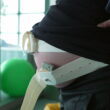Every menstrual cycle is orchestrated by a delicately balanced symphony of reproductive hormones that allow ovulation, the release of a mature egg, for possible fertilization. Among other things, follicle-stimulating hormone (FSH) triggers follicular development, estrogen produces a thick uterine lining, luteinizing hormone (LH) triggers the release of a mature egg, and progesterone prepares the lining for implantation. But what role do lesser-known hormones like DHEA play in the menstrual cycle and fertility as well? And what does research show about DHEA’s impact on fertility options and pregnancy outcomes? Let’s take a look at what we know!
What is DHEA and what does it do in the body?
DHEA (dehydroepiandrosterone) is a hormone derived from cholesterol and produced largely by the adrenal glands. Smaller amounts are made by the ovaries in women, testis in men, and the brain in both [1]. DHEA is a precursor to estrogen and testosterone in both men and women (remember, men make mostly testosterone and a little estrogen, and women make mostly estrogen and a little testosterone) [2]. DHEA is implicated in bone health, blood sugar regulation (and the ability to lose weight through improved insulin sensitivity), and more [3], [4].
Why have I never heard of DHEA before?
The reason DHEA is not listed as one of the major reproductive hormones (think estrogen, progesterone, LH, and FSH) in a female menstrual cycle is because its role occurs before these hormones take the stage [5].Think of it like when you get an award for some achievement, and begin by thanking everyone who helped you get to this point. In other words, if estrogen (or testosterone) gave an acceptance speech at the Oscars, they would definitely credit DHEA.
Believe it or not, as a newborn, every one of us had high DHEA levels. Those levels dropped shortly after birth, and then rose again to trigger the physical changes we associate with puberty. Think underarm hair and pubic hair. DHEA levels peak in young adulthood, and then naturally decrease with age.
What are the signs of abnormal DHEA levels?
Stress and other factors may throw DHEA levels out of whack. If your doctor suspects this, they may order a DHEA-S (dehydroepiandrosterone-sulfate) blood test. DHEA-S is simply DHEA after it has been metabolized in the adrenal glands and liver.
High levels of DHEA-S in women can cause acne, deepened voice, excessive hair growth on the face or body (hirsutism), missed or irregular periods, female pattern baldness, increased muscularity and, in some cases, the inability to conceive.
Symptoms of low levels of DHEA-S may include fatigue, brain fog, muscle loss, lower stamina, vaginal atrophy, and reduced libido. Low levels of DHEA-S can contribute to dyslipidemia (too high LDL or triglycerides and/or too low HDL) osteoporosis, dementia, vaginal atrophy, and reduced libido [1].
How might DHEA impact fertility and pregnancy outcomes?
Because DHEA is a precursor to estrogen, too high or too low DHEA may have a noticeable impact on menstrual cycle health, fertility, and successful pregnancy outcomes. Insufficient estrogen production may be implicated in irregular cycles, infertility, and (see below) possibly miscarriage. We know that DHEA supplementation boosts estradiol levels, but will it lead to actual improved outcomes for the things adequate estrogen does in the body [6]? In other words, while supplementation will raise your DHEA lab value numbers, does it actually do anything?
Can DHEA help women get pregnant?
In situations of infertility and low estradiol levels, treatment with DHEA supplementation is being studied. A 2019 research review found that in women with diminished ovarian reserve undergoing in vitro fertilization (IVF), “Empirical evidence suggests there is little if any benefit of DHEA to fertility treatment success, but there is also no evidence of harm” [7]. The researchers hypothesized that this is because the “supraphysiological levels of gonadotropins typically used in IVF protocols [overcome] any additional effects of androgen treatment.” They summarized cautiously “as personalized medicine advances, there may be a place for androgen supplementation in women with (diminished ovarian reserve) early in their reproductive lives with the goal of decelerating follicle depletion before attempting to have children” [7].
Another 2023 research review of DHEA supplementation in women undergoing IVF found that markers of oocyte (egg) quality as well as fertilization rates were improved in multiple studies, but “all studies found no differences in stimulation parameters (duration of stimulation and total dose of gonadotropins used) and pregnancy outcomes (clinical pregnancy, ongoing live pregnancy, and live birth rates” [8].
Interestingly, a small 2013 study found that in young women who had previously undergone unsuccessful IVF or who were older and preparing to start IVF, DHEA supplementation led to sizable numbers of spontaneous conception (meaning that the woman conceived naturally, on her own) [9]. Larger studies are needed to confirm this phenomenon.
Can DHEA help women stay pregnant?
For those who’ve experienced miscarriage due to low estradiol production during pregnancy, DHEA supplementation may be a reasonable treatment possibility. A small 2024 study found that DHEA supplementation significantly reduced miscarriage rates in women with low estradiol levels in early pregnancy [10]. Supplementing estradiol directly increases the risk of blood clots, but DHEA may be used in its place to encourage estradiol production without the same risk [6].
How does DHEA supplementation work?
Since DHEA is a hormone created naturally in the body, it’s important to have its supplementation monitored by a qualified medical professional. Taking DHEA without knowing your current level comes with risks. If your doctor or other healthcare professional agrees that supplementation makes sense for you, they can periodically check your levels to ensure you’re within range. Supplementation is not likely to make sense for women at risk of hormone-dependent cancers like breast cancer (since DHEA boosts estrogen and estrogen increases breast cancer risk).
What are natural ways to boost DHEA levels?
Let’s say you’re looking to boost your DHEA levels naturally, either instead of or in addition to supplementation. Since stress, specifically high levels of the stress hormone cortisol, can lead to an imbalanced ratio of too much cortisol to too little DHEA, managing your stress is key. This may look like increasing your exercise, going to therapy or talking things out with a close friend or family member, eating whole foods and minimizing processed foods (yes,even though empty-carb cravings tend to hit when you feel stressed!), getting out in nature (bonus: this will also boost your Vitamin D, which your body requires to make DHEA!), and practicing gratitude [12].
The bottom line on DHEA and fertility
Understanding the hormones responsible for a healthy reproductive cycle can empower you with more options for addressing underlying health issues, like diminished ovarian reserve. DHEA, specifically, may provide valuable support and may even improve the chances of spontaneous conception for those trying to conceive. It’s important to remember, though, that DHEA is not a miracle hormone. It’s simply a tool that, under the right circumstances, may improve overall health and potentially pregnancy outcomes. Be sure to discuss DHEA and how it may help in your reproductive life planning with your healthcare professional.







